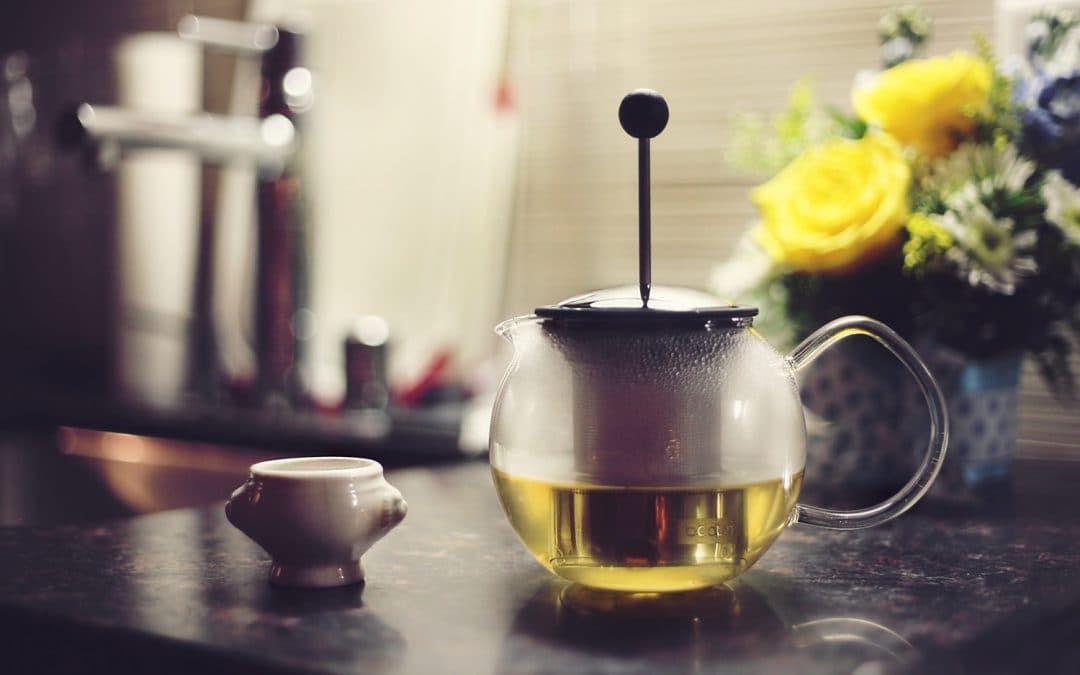
by Andy Wong | Mar 18, 2018 | Chinese Medicine
The use of Traditional Chinese Medicine to increase a woman’s chances of conceiving is on the rise as more and more couples are seeking more natural methods to assist them to start a family.
When considering the use of Traditional Chinese Medicine to support your fertility goals, we recommend three proven tips help you along the way.
Check your hormones
If your hormones are out of balance, conception often becomes a very difficult process. Stress is usually the biggest culprit towards a woman’s off-balance hormones, potentially causing them to impede their chances of naturally conceiving.
Aside from cutting down your stress and promoting relaxation and wellbeing, be sure to implement a healthy diet and exercise to boost your natural balance.
Improve your emotional wellbeing
According to Traditional Chinese Medicine, emotional wellbeing is strongly linked to both physical ailment and reproductive difficulties. The organ systems most closely associated with fertility are the lungs and the liver, believed to correlate with stress and frustration.
Such negative emotions link to what is known as Liver Qi stagnation, causing organ imbalance and significant stress on body functions. Liver Qi stagnation can be overcome by implementing holistic methods such as acupuncture, yoga, meditation or natural herbs.
Optimise blood flow to your reproductive organs
Traditional Chinese Medicine believes that a demanding lifestyle will decrease your chances of conceiving naturally due to the stress placed on the body’s organs and blood flow.
Stress will cause your blood flow will lose its strength where it is needed most, your reproductive organs. In order to assist your blood flow to restructure its course and assist your fertility, try acupuncture as a method to naturally increase circulation.
Additionally, massage, yoga and meditation are fantastic ways to optimise your blood flow and minimise any added stress on your body.

by Andy Wong | Mar 5, 2018 | Health
Within the art of Chinese medicine, each weather season is believed to correspond with a particular organ system.
The cooler autumn months correlate with our Ying Organs – our lungs, and it is believed that this is why there are so many colds and coughs present throughout this time of year.
As our lungs are already susceptible to dryness and congestion at the best of times, it’s particularly important to take care of our respiratory system during this upcoming autumn.
Here are our top three tips to do so, and to ensure optimal health for both you and your loved ones.
Head outside
Taking a brisk walk during the cooler months is an excellent way to strengthen your lungs by breathing in that fresh, crisp air. Where possible, stretch your chest while walking in order to open up your ribcage and breathe right into your diaphragm.
Eat the right foods
As the weather cools down, it’s important to ensure your vitamin and mineral intake is appropriate for your body’s needs. When the air is cool, the human body hugely benefits from hearty meals such as soup and stews, which also assist in digestion. Be sure to incorporate plenty of fruits, vegetables, herbs and spices into your diet. We highly recommend garlic, ginger and onion.
Avoid excess dryness
While this may seem obvious to some, it is vital that you stay hydrated during the autumn months, avoid overusing heating elements such as stoves and fireplaces, and utilise a humidifier where necessary.

by Andy Wong | Feb 21, 2018 | Health
For many people, exercise is something we simply don’t get enough of. With more and more people moving into office-based employment, our incidental exercise is on the decline and many of us are living increasingly sedentary lives.
However, physical activity doesn’t need to be complicated. In fact, you could even say it’s a walk in the park!
Walking is a simple exercise that offers many great benefits to both the body and mind, and for the most part, it’s completely free. Here are just a few of the ways in which walking can improve your overall health and wellness.
Maintain a healthy weight
Studies show that when paired with a balanced diet, a brisk 30-minute walk once a day can be enough to help you maintain an ideal weight. Weight gain is often caused by an excess of calories that remain unused and are then stored in the body as fat. In it’s most simple form, walking burns calories, meaning it can burn excess body fat and prevent additional weight gain.
Prevent or manage various conditions
A lack of physical activity can really affect our health, and has been linked to heart disease, high blood pressure and type-2 diabetes. By committing to regular walks and making them part of your everyday routine, you can really help manage your symptoms and even lower your risk of developing these conditions in the first place.
Strengthen your bones and muscles
When it comes to your body it’s true what they say, use it or lose it! A consistent lack of exercise will gradually cause your bones and muscles to weaken, particularly as you age. The good news is that a simple daily walk will combat against this. Walking is a weight-bearing exercise, and while you might not realise it at the time, walking actually engages a large range of muscles and bones, making it the perfect full body activity.
Improve your mood
There’s nothing like a walk in the fresh air to give you an all-natural mood boost! Studies show that walking can decrease feelings of stress, depression and anxiety, as well as releasing endorphins which promote feelings of happiness.
With all these benefits and more – what’s not to love?

by Andy Wong | Feb 12, 2018 | Health
For thousands of years, drinking tea has been an important part of Chinese culture. While tea was often consumed during ceremonies or celebrations, the health benefits of drinking tea were also widely recognised and largely applauded.
Today, the benefits of drinking tea continue to play an important role in the practice of Traditional Chinese Medicine. Modern research has allowed us to learn more about the benefits of drinking tea – with many studies serving to confirm what our ancestors have always believed.
While most teas are full of cell-protecting antioxidants, each unique blend offers it’s own set of additional health benefits. Here are some of the health benefits of drinking different teas.
Green Tea
Most commonly known for its metabolism-boosting and fat-burning properties, green tea has also been found to offer protection from cancer and heart disease.
Chamomile Tea
Chamomile tea is often prescribed for those suffering from insomnia, and is considered to be one of the most widely used natural sleep aids. However, it also features strong antispasmodic and anti-inflammatory properties, which makes it an excellent choice for anyone experiencing stomach cramps.
Peppermint Tea
One of the most popular tea varieties, peppermint tea has a cooling effect which has been shown to reduce fevers. It also helps to improve digestion and reduce bloating and stomach discomfort, making it a top choice to combat against irritable bowel syndrome (IBS) symptoms.
Ginger Tea
Ginger tea is often praised for it’s ability to reduce nausea and vomiting associated with travel sickness. Impressively, it can also help to improve circulation, fight respiratory problems and strengthen immunity.
Dandelion Tea
Dandelion tea is a natural diuretic, which means it aids the liver in eliminating toxins from the body more quickly and prevent urinary tract infections (UTIs). Dandelion tea is also known to have a great cleansing effect, and is often used in detoxification practices.

by Andy Wong | Jan 22, 2018 | Health
Recent research has shown us that working in an office can be harmful to our overall health, however there are a number of things that we can do within our workspace to help combat the effects of this sedentary lifestyle.
Add a touch of greenery
Adding potted plants to your workspace can have a whole host of surprising health benefits. Not only do they look good and help to improve the atmosphere, but many also offer air-purifying properties.
Plants like peace lilies and succulents are incredibly easy to look after, and can help improve air quality and reduce sickness and absenteeism.
Open up the windows
One of the most common problems of modern day workplaces is the lack of fresh air present in the office. Instead, many companies rely on air conditioning, choosing to set it at an agreed upon temperature.
Too much use of air conditioning can seriously affect our sinuses and can even increase the likelihood of catching a cold or the flu – and it can also lead to extremely high energy bills!
Rather than relying on the air conditioning, make it a regular practice to open up the windows and start breathing in some fresh air.
This point is especially important if you have cut flowers in water anywhere in the room, as cut flowers that aren’t properly maintained can be a breeding ground for germs and bacteria.
Install ergonomic furniture
Sitting at a desk all day long can take a large toll on our bodies – particularly when we are not able to access ergonomic furniture. Consider investing in quality furniture that can be adjusted to our ideal height and distance.
It’s a great idea to go for regular walks away from your desk, but if that’s not an option, perhaps look at purchasing a standing desk. This way you’ll have the opportunity to stretch your legs without having to be away from your desk.
Make time to switch off
The final tip to improve your workspace actually has nothing to do with the workspace at all! However, in order to function at your best, it’s crucial that you make time to properly switch off from work.
By committing to taking proper breaks you can give your mind the rest it needs to really cover. Your mental health will thank you for it!






Recent Comments